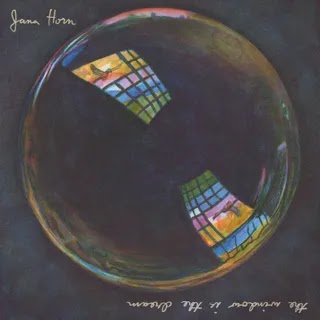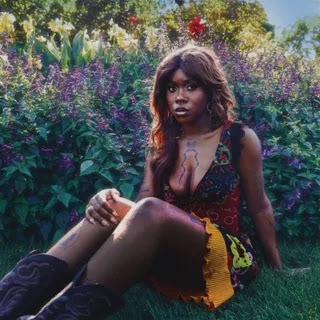The Stranger Things actor’s move into music is refreshingly thoughtful and understated, with emotionally incisive songwriting and a featherlight voice wrapped up in Laurel Canyon arrangements.
Every once in a blue moon there emerges from the crowded field of car-crashing celebrity children a legitimate talent. A Carrie Fisher, say, or a Ronan Farrow: some rare, shining light who burns through our deep-seated aversion to nepotism by working hard and doing good. With her debut LP, Blush, which arrives on the heels of her star turn in last summer’s season of Stranger Things, Maya Hawke—actor, model, and daughter of Uma Thurman and Ethan Hawke—makes a convincing case for her own place on this rarefied list. She is not the first Hollywood heiress to gun for indie cred—for the longest time, I thought Frankie Cosmos was a broke kid from Brooklyn—but her move into music has been refreshingly thoughtful and understated.
There is no entitlement or ostentation in Blush. Hawke wrote the lyrics for each track herself, proving herself a gifted explorer of the many forms love can take. Stunning standout “Hold the Sun” is the sort of song parents sing to rock their babies to sleep, and “Goodbye Rocketship” is a lullaby in reverse, sung from child to parent. Here, Hawke forgives a parent who did their best: “You didn’t know how to raise me any more than I knew how to grow up.” There is a striking emotional maturity in Hawke’s move toward reconciliation, which continues on “River Like You.” The song seems, at first, to condemn a friend who “rushed into my belly and clouded over my eyes.” But Hawke is not laying the blame at this person’s feet. “I’m a river, too,” she sings, and she’s “tamed the moss upon the rocks, and molded the red clay.” The song becomes a hand extended from one dysfunctional person to another, in an effort to heal together.
Other songs are especially poignant, given the context of their release in a pandemic. The record was finished late last year, but Hawke seems to have predicted the phenomenon of loving and caring from afar. She relies, in the lyrics of “Coverage,” on dreams and wishes, tells us that she’s not “really here.” Lead single “By Myself” is both an anthem for the present moment and for anyone who has, perhaps, been a little unsettled by how easily they adjusted to said moment. “I’m playing with myself,” she sings on the first chorus, and alters the verb on each repetition: “talking to myself,” “dreaming of myself,” “beating up myself.” This narrator is used to loneliness; prefers it, even. “I prefer my dreams of you,” she sings, “to anything you’d ever do.”
Hawke’s voice is beautiful. It is soulful, featherlight, a natural fit for the careful Laurel Canyon arrangements that make up most of the record. Producer Jesse Harris takes care not to smooth out her natural rasp, and often records her as though she’s practicing ASMR. At its best, on a seductive kiss-off like “So Long” or the yearning closer “Mirth,” this technique lets you feel like you’re in the room with her. That said, her voice isn’t built for the Joplin swagger of “Animal Enough.” It is not enhanced by the backing of a chorus of children on multiple tracks. The kids are charming, if a little grating, on the whimsical “Cricket,” but they are wildly out of place in the dark, brooding dreamscape of “Menace.”
Even these missteps, though, are evident of a compelling urge to experiment. Blush is a record of impressive variety, both in sentiment and sound. Some of the riskier arrows fall far off the mark, but more often than not, Hawke hits her targets with verve and style.
















0 comments:
Post a Comment